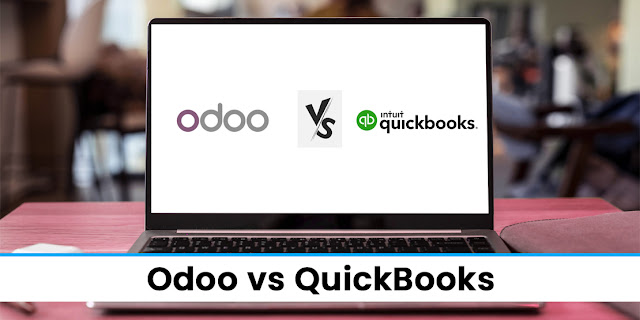Odoo vs. QuickBooks: Choosing the Right ERP Solution for Your Business
Selecting the proper Enterprise Resource Planning (ERP) answer is an essential choice for businesses seeking to optimize their operations, improve economic management, and beautify basic performance. In the realm of ERP software, Odoo and QuickBooks are two distinguished gamers, each imparting distinct features and functionalities. This evaluation targets to shed light on the strengths and variations among Odoo and QuickBooks, assisting businesses make a knowledgeable selection primarily based on their unique needs.
Scope and Customization: Odoo stands proud for its comprehensive suite of packages that cover a huge variety of business procedures. From challenge control and inventory manage to CRM and human assets, Odoo affords an integrated solution that can be custom designed to meet the precise necessities of various industries. QuickBooks, then again, basically makes a specialty of accounting and financial management, making it a more specialized solution in that element.
Integration Capabilities: One of Odoo's key strengths is its seamless integration of diverse modules, imparting a centralized platform for all commercial enterprise operations. This interconnectedness ensures that facts flow seamlessly among special functions, supplying a holistic view of business methods. QuickBooks, at the same time as excelling in accounting features, may also require additional 0.33-celebration integrations to achieve a similar stage of connectivity across one of a kind elements of an enterprise.
Scalability: As agencies develop, their ERP solution desires to develop with them. Odoo is understood for its scalability, allowing companies to start with some modules and make them bigger as needed. This flexibility is specifically superb for small and mid-sized organizations searching out an answer that could evolve with their changing needs. QuickBooks, even as appropriate for smaller groups, might also face boundaries in scalability because of the complexity and quantity of commercial enterprise transactions growth.
Functionality and Feature Set: QuickBooks has long relied on preference for accounting functions, offering a consumer-pleasant interface and strong features for financial management. It excels in areas consisting of invoicing, expense tracking, and monetary reporting. Odoo, but, affords a broader function set, encompassing now not most effective accounting but additionally venture control, inventory management, CRM, and more. The preference among Odoo and QuickBooks often boils all the way down to whether a business desires a specialized accounting solution or a comprehensive ERP system.
Cost Considerations: Cost is a critical component for organizations evaluating ERP solutions. QuickBooks, with its consciousness on accounting, can be a extra value-effective choice for smaller corporations with honest economic management desires. Odoo, with its huge capability, may also have a higher preliminary fee but can potentially offer better fee in the end, specially for growing companies that require a greater comprehensive answer.
User-Friendliness: QuickBooks is renowned for its user-pleasant interface, making it reachable for customers with various degrees of technical know-how. On the opposite hand, at the same time as Odoo offers a person-pleasant enjoy, its good sized function set might require a steeper mastering curve for customers surprising with ERP systems. Businesses need to don't forget the technical skill ability of their team individuals whilst evaluating the consumer-friendliness of every solution.
In the Odoo vs. QuickBooks debate, the right choice relies upon on the unique wishes and priorities of the commercial enterprise. QuickBooks excels as a specialized accounting solution, while Odoo offers a broader range of functionalities for businesses looking for an incorporated ERP machine. Understanding the scalability, customization alternatives, and average dreams of the commercial enterprise will guide the selection-making manner. Whether opting for the specialized awareness of QuickBooks or the comprehensive technique of Odoo, groups can leverage these ERP answers to beautify efficiency and drive growth in their respective industries.

.jpg)

.jpg)
Comments
Post a Comment